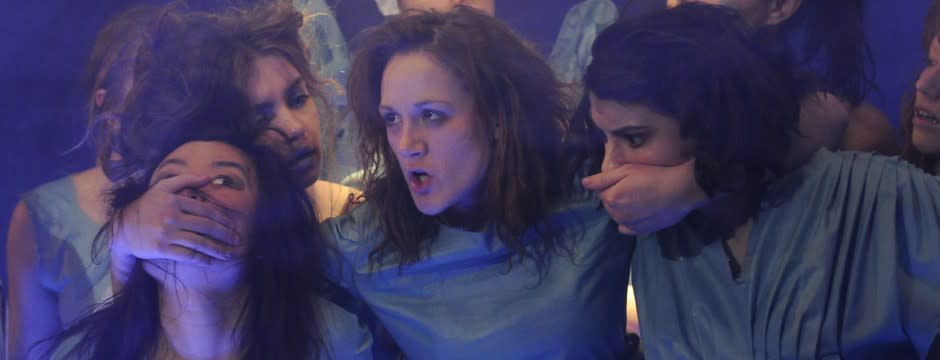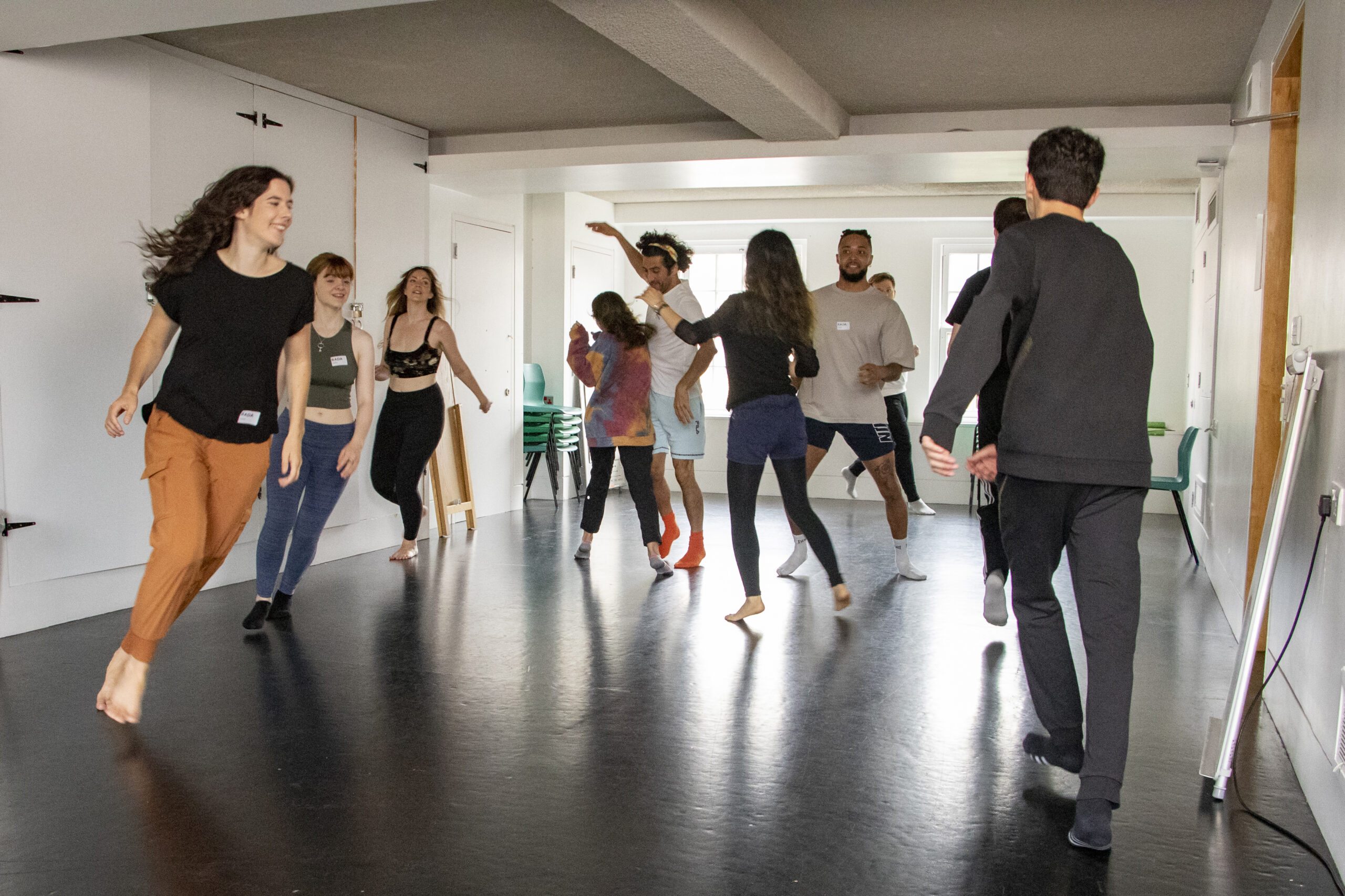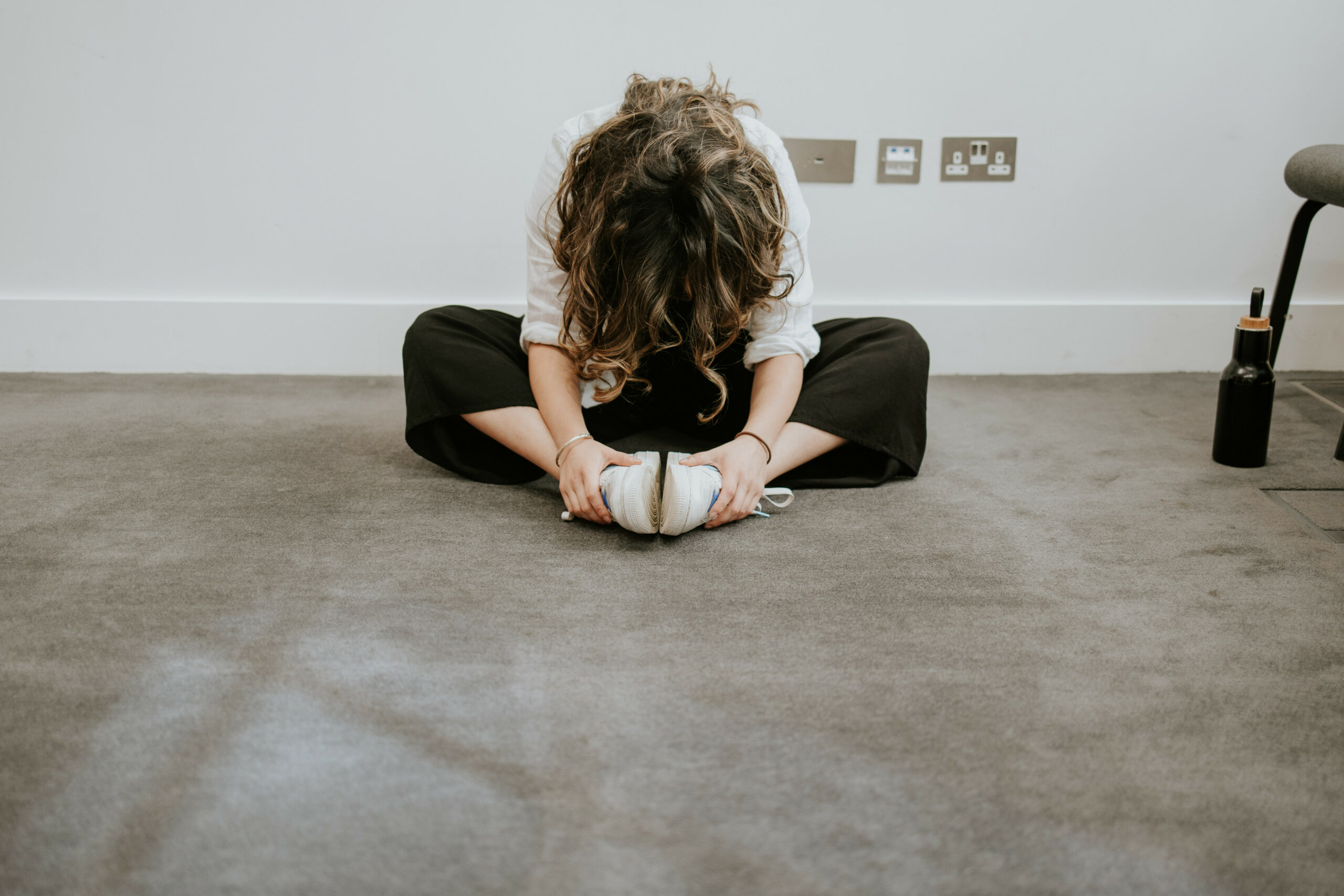We speak to Artistic Director Steve Green about Fourth Monkey and their training programmes.
Based in London and Bristol, Fourth Monkey is a contemporary drama school offering three full-time professional, accredited training courses: CertHE Acting and Theatre Making, BA (Hons) Acting and MA Collaborative Theatre.
The training programmes are founded on the principles of ensemble and are designed to provide students with the tools required of the modern working actor and theatre-maker to help them create sustainable careers in the creative arts. Students can expect public and industry-facing performance opportunities, including a full company graduate showcase and seasons of classical and contemporary work.
They’re also about to launch a new Young Actors Company initiative, offering young people aged 14 years+ an exciting new approach to acting for stage and screen and creative theatre-making.
To find out more about the school and their training programmes, we spoke to Fourth Monkey’s Artistic Director Steven Green.
it’s a core policy of ours that everyone who is working here is currently working in the industry in a very engaged, active and front-foot kind of way.
How did Fourth Monkey start?
I did the normal thing: worked as an actor and then started directing. I worked extensively in a number of different drama schools, but I just felt there was something missing. That nagged at me. It got to a point where you have to put your money where your mouth is. There is an alternative way of doing [drama training]. I’m not saying ‘better’, but differently. The whole drama school thing was geared towards a showcase moment. There was a real lack of clarity about what to do when you don’t have an agent, how to sustain yourself in the industry, how to access the industry, etc.
I went to Middlesex University back in the day in preference to drama school. I had quite a few offers from conservatoires, but I liked the experimental approach of Middlesex, where we were never told the word ‘no’. It was all about creating your own work, improvising and exploring. It felt somehow dangerous. We did things in bizarre places – like on a lake. It was very much about people embracing creative energy. I was very lucky, coming out of a school, getting an agent quickly and working, but that wasn’t the norm. How do you put something together that is selling the reality, in a more tangible and accessible way, as opposed to selling a dream that only a few people can fulfil? That was the objective.
What do you think it is about the Fourth Monkey programme that prepares an actor for the real world?
In the simplest sense, we bring the industry to the building. As opposed to being this inaccessible quagmire – it’s a core policy of ours that everyone who is working here is currently working in the industry in a very engaged, active and front-foot kind of way. In other words, they’re challenging things, pushing boundaries. They’re contemporary thinkers as opposed to traditionalists.
There are so many schools, so many ways of training, and it’s a saturated industry. The vocabulary that interests me is “I want to train to be an actor”. Let’s train you to be the best actor you can be in the most versatile way. I use the word ‘dangerous’ positively, the most dangerous actor you can be. That’s what I want to see when I go to the theatre! That’s what theatre should be about. It should be a visceral, passionate experience, not a passive observation. That’s the core of what we try to produce – the work we want to foster. New voices, which I think are so important.
How do you decide what productions you programme?
We always programme at the start of the academic year. We always wait to see who is in the room and commission the writer to write a season of work based on who we have in that year group. One year we had a very female-dominated group so it felt apt to write three very strong, quite often untold, female stories. And tell them in a contemporary way.
We have plays we’d love to put on that sit on the shelf until the right year group comes along. I don’t agree with starting the training process knowing what the programming is for 2-3 years down the way. With the 2-year programme, they do a classical season and a contemporary season.
Is there a common quality to the actors who come through Fourth Monkey?
They all tend to move, or want to move – it’s very physical training, it has a physical underpinning. We aren’t trying to create cerebral actors. Moving from the body first as opposed to the brain. Some people sweat loads and think that’s fantastic, others don’t fancy that.
They also tend to be very international, which is brilliant. I like hearing different accents and voices – giving people the opportunity to work in French, Italian or whatever it might be. It’s always interesting when you’re devising.
It’s a very eclectic bunch of people. With us, everyone who is here is here because they understand it. This isn’t going to be training at RADA or wherever; we all have our individual way of working. Those who get through the audition process are invigorated by that.
It’s collaborative. They work with Guillaume Pige, who is Artistic Director at Theatre Re, and a mime artist, with Will Pinchin, a phenomenal movement practitioner and wonderful Le Coq artist. [They develop work] that enables use of as much of the training as possible. Utilising things in a practical way. Stuff can’t stay in the classroom.
What is it about repertory training that prepares actors so well?
The ability to be malleable, I think. That’s invaluable. And the generosity that requires. We make sure it’s balanced – everyone plays a featured character, and then a chorus and ensemble member. When they get into a rep season, the progression [is huge]. You’re changing hats all the time, you’re responding to different ways of working. As an actor, I was lucky to work with Derek Jacobi and we got into conversations about rep, and he’d always say that’s where he learned his craft. You can learn so much in the room that is valuable, but ultimately you have to get off your arse and do it.
You’re going to need to keep yourself networking, and you might want to write your own stuff at some point, that’s the reality of this industry. The truth is that it won’t be easy. That isn’t said enough.
What do graduates of Fourth Monkey tend to do next? What do you hope graduates come away with?
On the 1-year, some of the guys will stick around and do the 2-year course afterwards, which is great. Equally, they go out and work as well. Our 2-year course is our equivalent of a full drama course, and the graduates work everywhere. Retention in the industry is about 94%. Whether they’re working in film, theatre, or creating work themselves, it’s a large pool actually working. All at various stages of development, but because there’s a like-minded pool of thinkers, there’s a natural gravitational pull. If they’re having a difficult time or they’re not getting work, there’s always an opportunity to do stuff with us in the ensemble, to do scratch stuff here, or work with alumni companies. I don’t feel they finish here and go, “That’s me done.”
I love it when someone gets a nice gig, that’s brilliant. But the stuff that really gets me is when people form their own companies, they have the drive to do it and have their own voice. It’s not more important, but it’s incredibly important. It’s about the family – sounds trite, but I really buy into the philosophy. Whether you’ve got an agent or not, you can’t sit back. You’re going to need to keep yourself networking, and you might want to write your own stuff at some point, that’s the reality of this industry. The truth is that it won’t be easy. That isn’t said enough.
What can you tell us about the Young Actors Company initiative?
We’re offering a new approach to acting for stage and screen and creative theatre-making and it’s open to all young people aged 14 years and over, regardless of background or experience. It combines weekly weekend morning workshops and monthly masterclasses to provide opportunities to engage creativity, develop performance skills and to meet new friends. We’re incredibly excited about The Young Actors Company and the opportunities it gives young people from the local community and beyond.
Thanks to Steve for taking the time to speak to us. If you’re interested in the Young Actors Company initiative, classes begin in September 2022 at The Monkey House in North London and The Bamboo House in Bristol. Find out more information on the Fourth Monkey website.
Photo credit: Fourth Monkey












